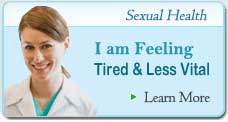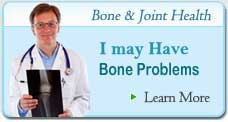» Anti-Aging
» Bones Joints & Muscle Health
» Cardiovascular Health
- Hip And Knee Joint Replacements: The Infection Risks
- All About Excessive Sweating & How To Stop Hyperhidrosis Sweats Ruining Your Life
- Should You Be Worried About Diabetic Retinopathy? Find Out If You Are Developing & How To Prevent It
- Must Know Lyme Disease Information - You Might Be Surprised To Find Out...
- Do You Have Sleep Apnea? Find Out What It Is And How To Treat It
» Chronic Pain Management
» Dental Health & Wellness
» Digestive Health Problems
» Health Care
» Mental Health
» Sexual Health
» Skin Care

Are Your Cholesterol Levels Where They Should Be?
It may surprise you to know that cholesterol itself isn’t bad. In fact, cholesterol is just one of the many substances created and used by our bodies to keep us healthy. Some of the cholesterol we need is produced naturally (and can be affected by family health history), while some of it comes from the food we eat.
Two types of cholesterol
There are two types of cholesterol: “good” and “bad”. It’s important to understand the difference, and to know the levels of “good” and “bad” cholesterol in your blood.
Two much of one type or not enough of another can put you at risk for coronary heart disease, heart attack or stroke.
Cholesterol comes from two sources: your body and food. Your liver and other cells in your body make about 75 percent of blood cholesterol. The other 25 percent comes from the food you eat. Cholesterol is only found in animal products.
A cholesterol screening measures your HDL and LDL. HDL is the “good” cholesterol which keeps the LDL (bad) cholesterol from getting lodged in your artery walls.
A healthy level of HDL may protect against heart attack and stroke, while low levels of HDL (less than 40 mg/dl for men and less than 50 mg/dl for women) have been shown to increase the risk of heart disease.
If you need to increase your HDL to reach your goals, studies show that regular physical activity can help your body produce more HDL’s. Reducing trans fats and eating a balanced, nutritious diet is another way to increase HDL.
If these measures are not enough to increase your HDL goal, your health care practitioner may prescribe a medication specifically to increase your HDL’s.
LDL cholesterol is the “bad” cholesterol. When too much of it circulates in the blood, it can clog arteries, increasing your risk of heart attack and stroke.
LDL cholesterol is produced naturally by the body, but many people inherit genes from their mother, father or even grandparents that cause them to make too much.
Eating saturated fat, trans fats and dietary cholesterol also increases how much you have. If high blood cholesterol runs in your family, lifestyle modification may not be enough to help lower your LDL blood cholesterol. Everyone is different, so work with your doctor to find a treatment plan that is best for you.
What Your Cholesterol Levels Mean
The American Heart Association endorses the National Cholesterol Education Program guidelines for detection of high cholesterol: All adults age 20 or older should have a fasting lipoprotein profile which measures total cholesterol, LDL (bad) cholesterol, HDL (good) cholesterol and triglycerides once every five years.
This test is done after a 9 to 12 hour fast without food, liquids or or pills. It gives information about total cholsterol, LDL (bad) cholesterol, HDL (good) cholesterol and triglycerides.
Your test report will show your cholesterol levels in milligrams per deciliter of blood (mg/dl). To determine how your cholesterol levels affect your risk of heart disease, your doctor will also take into account other risk factors such as age, family history, smoking and high blood pressure.
What Can Cholesterol Do?
High cholesterol is one of the major controllable risk factors for coronary heart disease, heart attack and stroke. As your blood cholesterol rises, so does your risk of coronary heart disease.
If you have other risk factors (such as high blood pressure or diabetes) as well as high cholesterol, this risk increases even more. The more risk factors you have, the greater your chance of developing coronary heart disease. Also, the greater the level of each risk factor, the more the factor affects your overall risk.
When too much LDL (bad) cholesterol circulates in the blood, it can slowly build up in the inner walls of the arteries that feed the heart and the brain. Together with other substances, it can form plaque, a thick, hard deposit that can narrow the arteries and make them less flexible.
This condition is called atherosclerosis. If a clot forms and blocks a borrowed artery, a heart attack or stroke can result.
High blood cholesterol: As blood cholesterol rises, so does the risk of heart disease. When other risk factors (such as high blood pressure and tobacco smoke) are present, this risk increases even more.
Your cholesterol level can be affected by your age, gender, family health and diet.
Prevention and Treatment of High Cholesterol
Too much cholesterol in the blood can lead to cardiovascular disease. Cardiovascular disease is the No. 1 cause of death in the United States. 2,200 Americans die of cardiovascular disease each day, an average of one death every 39 seconds.
The good news is, you can lower your cholesterol and reduce your risk of heart disease and stroke. Take responsibility for managing your cholesterol levels.
Whether you’ve been prescribed medication or advised to make diet and lifestyle changes to help manage your cholesterol, carefully follow your doctor’s recommendations.
Lifestyle Changes
Your weight, physical activity and exposure to tobacco smoke all affect your cholesterol level and these factors may be controlled by:
- eating a heart-healthy diet
- enjoying regular physical activity
- avoiding tobacco
Know Your Fats
Knowing which fats raise LDL cholesterol and which ones don’t is the first step in lowering your risk of heart disease.
Cooking for Lower Cholesterol
It is hard to whip up recipes that fit with the low-saturated fat, low-cholesterol eating plan recommended by scientists to help you manage your blood cholesterol level and reduce your risk of heart disease and stroke.
Understand Drug Therapy Options
For some people, lifestyle changes alone aren’t enough to reach healthy cholesterol levels. Your doctor may prescribe medication. Learn about
- types of cholesterol-lowering drugs
- tips for taking medications.
Importance Of Working With Your Doctor
It takes a team to develop and maintain a successful health program. You and your health care professional each play an important role in maintaining and improving your heart health.
Know how to talk with your doctor about your cholesterol levels and be sure you understand all instructions. Follow your plan carefully, especially when it comes to medication-it won’t work if you don’t take it as directed. And learn to make diet and lifestyle changes easy and lasting.
You May Also Find Informative:
Aging Fit - Health Research & Information
Better Health. Energy. Quality.






